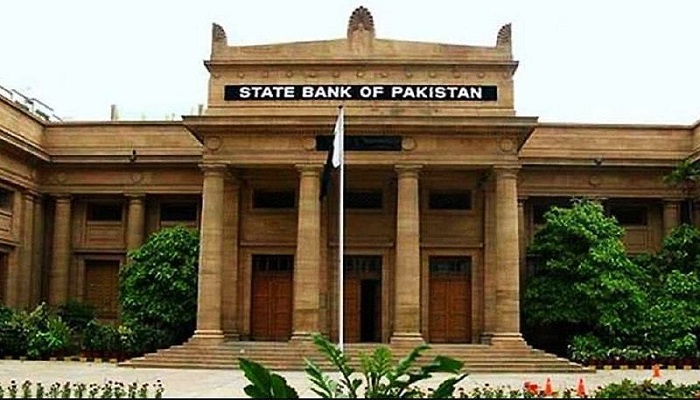SBP reduces interest rate by 150bps to 20.5% after four years

SBP reduces interest rate by 150bps to 20.5% after four years
KARACHI: The State Bank of Pakistan (SBP) on Monday reduced its key interest rate by 150 basis points, marking its first rate cut in almost four years, in an effort to stimulate growth amid a sharp decline in retail inflation.
The decision to lower the key rate to 20.5% comes just two days before the budget announcement and follows a report showing inflation dropped to a 30-month low of 11.8% in May.
The Monetary Policy Committee (MPC) stated that while the significant decline in inflation since February was in line with expectations, May’s inflation rate was better than anticipated.
The Committee noted that underlying inflationary pressures are diminishing due to a tight monetary policy stance and fiscal consolidation.
However, the MPC identified some risks to near-term inflation due to upcoming budgetary measures and uncertainty about future energy price adjustments.
Despite these risks, the Committee believes the cumulative effect of previous monetary tightening will help keep inflationary pressures under control.
A survey by Topline Research revealed that 43% of participants expected a 100bps rate cut, while a CFA Society Pakistan poll showed 48% expected a decrease of up to 100bps. A Bloomberg survey indicated 63% anticipated a 100bps reduction.
This is the first time in four years, since June 25, 2020, that the SBP has begun monetary easing. The central bank last adjusted rates in an emergency meeting in late June last year, raising them by 100 basis points to a record high of 22%.
Economist Khaqan Najeeb told Geo News that with the previous rate at 22%, the real interest rate had become significantly positive at 10%. He noted that with inflation at 11.8%, there was ample room to lower the interest rate.
Najeeb highlighted that Pakistan’s economy, with a growth rate near 2.2% driven by the agriculture sector, was currently sluggish. He expressed optimism that with inflation and food prices trending downward due to wheat and rice crops, inflation should continue to ease into June.
The MPC statement indicated that real GDP growth was moderate at 2.4% in FY24, with strong agricultural growth partly offsetting weak recovery in industry and services. Additionally, a reduction in the current account deficit improved FX reserves to around $9 billion, despite large debt repayments and weak official inflows.
The government has approached the IMF for an Extended Fund Facility program, expected to unlock financial inflows and further build FX reserves. International oil prices have declined, while non-oil commodity prices have slightly increased.
Considering these developments, the Committee deemed it an appropriate time to reduce the policy rate. They noted the real interest rate remains significantly positive, essential for guiding inflation toward the medium-term target of 5–7%.
Economic activity in Pakistan has slowed over the past two years due to tough reforms under an IMF bailout aimed at stabilizing the economy. Finance Minister Muhammad Aurangzeb, speaking at a business conference in China last week, anticipated that rates would decrease in response to falling inflation.
Read More News On
Catch all the Business News, Breaking News Event and Latest News Updates on The BOL News
Download The BOL News App to get the Daily News Update & Live News.